Share post now

global
The Alliance Sud magazine analyses and comments on Switzerland's foreign and development policies. "global" is published four times a year (in german and french) and can be subscribed to free of charge.
South Perspective
02.10.2025, Climate justice
It is now time to promote responsible mining practices that enable Africa to maximise the returns from its strategic reserves of transition minerals, secure better standards of living for its citizens, and mitigate negative social and environmental impacts. Emmanuel Mbolela
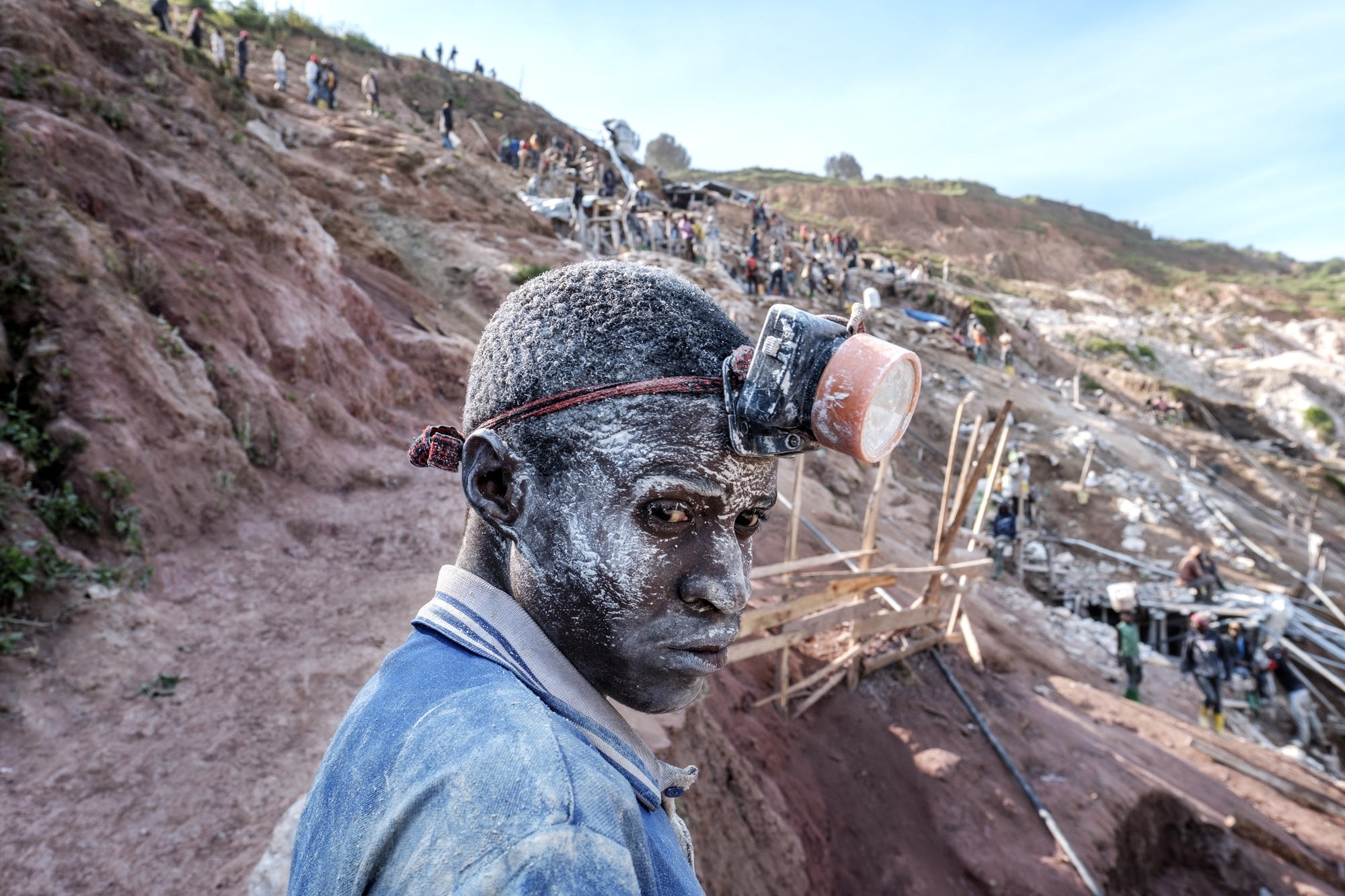
Who profits from coltan, the mineral that powers our future? The Rubaya mines are at the centre of the war between the M23 militia, Congo and Rwanda. © Eduardo Soteras Jalil / Panos Pictures
The world energy transition is deemed indispensable to the fight against global warming and the shaping of a sustainable energy future for coming generations. For about the past decade, the topic has been unavoidable in political and public debates in countries of the North and South. Africa figures in those debates as a continent that embodies the solution by virtue of its exceptional biodiversity, which leaves no doubt about its key role as a global carbon sink. Africa has been integral to these debates also by virtue of its subsoil, which holds deposits of the various transition minerals (copper, cobalt, lithium, nickel, coltan and tantalum) that the world needs for manufacturing electric vehicle batteries, storing renewable energies, and for the innovative technologies that are key to the global energy transition. According to the International Energy Agency, demand for these minerals will grow 4 to 6 times by 2040.
Yet there is still an open question regarding the fate of the continent that produces and supplies these strategic raw materials. Will Africa serve yet again as a mere cash cow, or will this energy transition process pave the way for its emergence?
Africa has always been at the heart of the major transformations that have led to the industrialisation of nations, and this at a very high cost.
Let me recall that thanks to its population and natural resources, Africa has always been at the heart of the major transformations that have led to the industrialisation of nations, and this at a very high cost. One such cost was the slave trade, in which Africans were forcibly put on ships, transported under inhumane conditions, and sold in America to work on sugar or cotton plantations. Another example is rubber, which was used to make the inflatable tyres that revolutionised the entire automobile industry. Its extraction, however, left painful memories behind in the producing African countries. We will never forget the physical violence (severing of hands, kidnapping of women and children) meted out in the Congo by King Leopold II of Belgium to compel the people to extract more of this white gold, the sale of which served only to enrich the King himself and to develop his Kingdom of Belgium.
The industrial revolution of the 20th century was made possible thanks to the commodities supplied by Africa. Also worthy of mention is the uranium extracted in the south of the Democratic Republic of the Congo and used to manufacture the atomic bomb that helped to end the Second World War. Only very recently, in the development of modern-day information and communication technologies, Africa was again called upon to supply the raw materials, especially coltan, which is used in the manufacture of telephones and notebooks.
Paradoxically, Africa is at the bottom of the hierarchy. Its sons and daughters are being forced to become wanderers in search of an El Dorado. They are dying in the desert and at sea, under the complicit and culpable gaze of those who have the means to save them but refuse to do so under the pretext that they would be creating a pull factor.
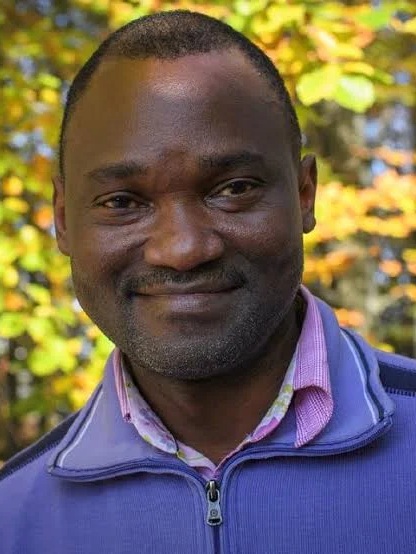
Emmanuel Mbolela holds a Master's degree in Applied Economics, with a specialisation in “Nouveaux environnements économiques et entrepreneuriat éthique” [New Economic Environments and Ethical Entrepreneurship] from the University of Angers in France.
He is an advocate and defender of fundamental migrants’ rights and author of the book titled “Réfugié : Une odyssée africaine“ [Refugee: an African odyssey]. He is the founder of the “Association des réfugiés et des communautés migrantes” [Association of refugees and migrant communities], and initiator of the project to create a shelter that provides temporary and emergency accommodation for migrant women and their children.
Today, Africa is again being called upon. It is showing up as it has always done for every rendezvous with history that has marked the industrialisation of nations. And yet again, it is playing the role of a continent with the solution – this time serving as a carbon sink to counteract global warming, and as the supplier of raw materials indispensable to the energy transition.
Yet, while previous industrial revolutions have helped to develop Western countries and improve their people’s quality of life, Africa’s lot has been bloodshed and painful memories. One example is the Democratic Republic of the Congo (DRC), which, for thirty years now has been witnessing a war of depopulation and repopulation in its eastern region, where gigantic transition mineral mines are located. Although the country does not possess a single weapons factory, this armed conflict has already claimed millions of lives and spawned hundreds of thousands of internally displaced people and refugees. The large-scale rape of women and children is legion and is being used as a weapon of war to drive people out of towns and villages, forcing them to abandon their lands which are then immediately captured for mineral mining.
On the back of exponential growth in the demand for these minerals, we are now witnessing predatory and illicit practices in their extraction: child labour is being used in mines, armed conflicts are being deliberately provoked, and agreements are being signed with no transparency whatsoever, not just by multinational corporations but also by governments. Let us take the example of the agreement signed in February 2024 between the European Union and Rwanda on the sale of critical raw materials. It was signed just as that country had invaded its neighbour the DRC, and in full awareness on the part of the EU that Rwanda possesses no mines for these metals and that the minerals it is putting up for sale on the international market are being plundered from the DRC.
Cobalt ore from the Shabara mines in the Congo, where thousands of people dig in the most adverse conditions in an area controlled by Glencore. © Pascal Maitre / Panos Pictures
A peace agreement between the DRC and Rwanda was just signed on 27 June in Washington, with the mediation of the Trump administration. This agreement was reached after negotiations between American and Congolese authorities on the exploitation of rare raw materials, and is in line with President Trump's philosophy of exchanging peace for strategic minerals. It is the businessman's administration – President Trump has stated his readiness to end Rwanda's aggression against its neighbour the DRC, provided the latter cooperates with the United States in exploiting its mineral resources. It is now clear that this agreement, so much vaunted by Donald Trump, is really nothing other than the opening of the doors to the United States, thereby granting it access to minerals indispensable to world technology.
Multinationals are motivated by profit maximisation. They are not interested either in creating stable employment or in sustainable extraction practices.
The inevitable outcome of such an agreement will be peace without food security and the outbreak of a conflict between the great powers on African soil. This is even more likely as the multinationals that would be coming to the Congo are motivated by profit maximisation and would accordingly extract and take the products away for processing in their respective countries. They are not interested either in creating stable employment or in sustainable extraction practices. We cannot rule out the possibility that this accord could eventually trigger a war on Congolese soil between the great powers, more specifically the European Union and the United States of America, risking a repeat of the situation that arose around 1997 in Congo Brazzaville. That country’s democratically elected government was overthrown because President Lissouba had signed oil mining agreements with American companies, to the detriment of French companies that had long been present there. Those companies lost no time in re-arming former President Sassou-Nguesso in order to overthrow Pascal Lissouba. The ensuing war claimed hundreds of thousands of lives and spawned hundreds of thousands of internally displaced persons and refugees, and was subsequently described as an ethnic war.
Besides the aforementioned agreements, there was also the railway construction megaproject initiated by the United States and supported by the EU, designed to link the Democratic Republic of the Congo with Zambia, and to end in Angola’s Port of Lobito. It was inaugurated in Angola by former US President Joe Biden in his final days in office, and is intended to shorten the time needed to transport raw materials. Such a project takes us back to those launched during the colonial era, when roads and railways were built not to open up and develop colonies, but to link mineral mining areas or regions with the seas and oceans for easier transportation of raw materials to the metropolis.
Such reforms must end predatory exploitation, so that these minerals no longer constitute a curse, but instead bring happiness and a zest for life to the population.
Young Africans, who watch day by day as thousands of containers laden with these riches leave the continent for distant places (Europe, United States, Canada, China…), are calling for thoroughgoing reforms. Such reforms must end predatory exploitation, so that these minerals no longer constitute a curse, but instead bring them happiness and a zest for life.
In particular, the benefits derived from strategic reserves of transition minerals should be maximised for the good of the extracting countries so as to improve their citizens’ standard of living and mitigate the negative impacts of mineral mining.
To this end, it is high time to activate and encourage the rigorous and bold implementation of the various international policies that have been lying dormant in drawers. These include the United Nations Guiding Principles on Business and Human Rights, the OECD Guidelines for Multinational Enterprises on Responsible Business Conduct, and the guiding principles of the UN Secretary-General's Panel on Critical Energy Transition Minerals.
If the energy transition is to be fair and equitable, then it would be fair to apply the polluter pays principle, not that of the polluted pays.
Support for undertakings like the Responsible Business Initiative in Switzerland goes without saying. The success of such initiatives depends, among other things, on raising public awareness and adequately informing citizens about the human tragedies and the environmental degradation being caused by the mining industry in Africa. Such actions could support the ongoing and unrelenting struggle of civil society across African countries to advocate for greater societal and environmental responsibility on the part of companies operating in the industry.
These multinational corporations are in a position of strength, especially when it comes to the conclusion of mining contracts – often opaque and unknown to local communities. They use their position to bypass the rights of citizens and the fundamental rules of mining. They conduct their mining activities in a manner that overlooks the elementary rules of public health and fails to respect the rights of the local people. They are therefore the root cause of the air pollution and toxic water contamination that are giving rise to pathologies often unknown to the population, but which are lethal and are helping to exacerbate the public health crisis.
African societies are still waiting for countries in the North to acknowledge the role being played by Africa. This role deserves climate funding and compensation for the part that African peoples are being required to play in environmental preservation. If the energy transition is to be fair and equitable, then it would be fair to apply the polluter pays principle, not that of the polluted pays.
Share post now

global
The Alliance Sud magazine analyses and comments on Switzerland's foreign and development policies. "global" is published four times a year (in german and french) and can be subscribed to free of charge.
Swiss Environment Minister at COP29
29.11.2024, Climate justice
The UN Climate Change Conference COP29 has come to an end, while the climate crisis is destroying the livelihoods of millions of people. While delegates from the Global South criticise the inadequate climate financing, Swiss Environment Minister Albert Rösti shirks Switzerland's responsibility, citing budget restrictions and the mobilisation of private funds. This is an affront, writes Andreas Missbach.
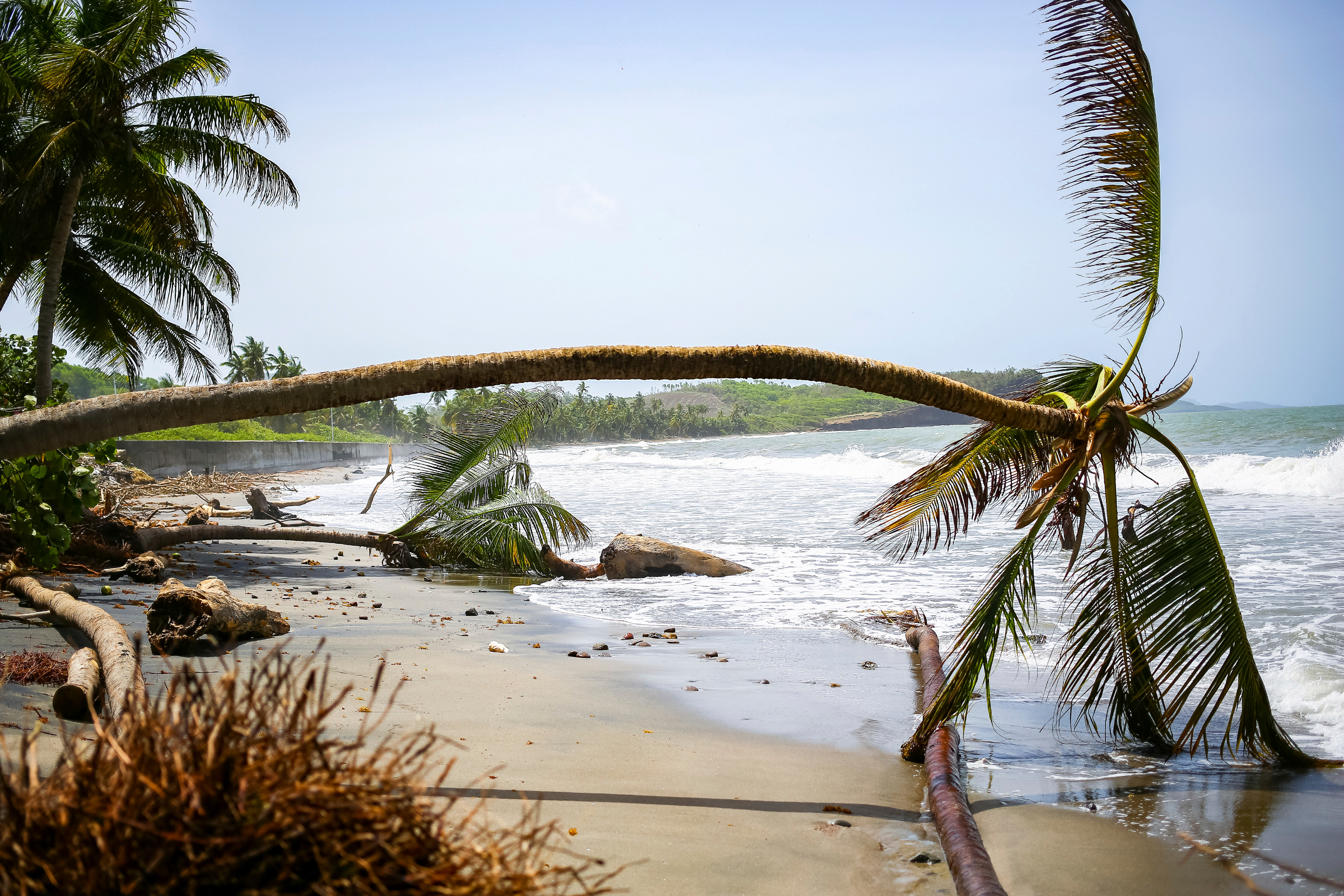
Palm trees uprooted by Hurricane Beryl in St Patrick, Grenada, in July 2024. Houses and entire areas were destroyed throughout the Caribbean. © Keystone / AP Photo / Haron Forteau
On 17 July 2024, Simon Stiell stood in a damaged house on his native island of Carriacou and said: ‘Today, I'm standing in the living room of my neighbour’s house. My own grandmother's house down the street has been destroyed.’ That was the work of Hurricane Beryl, which had swept over Grenada and many other countries. He also said: ‘Standing here, it's impossible not to recognise the vital importance of delivering climate finance, funding loss and damage, and investing massively in building resilience, particularly for the most vulnerable.’
Simon Stiell is Executive Secretary of the UN Framework Convention on Climate Change and, as such, responsible for the 29th Conference of the Parties to this Convention in Baku. On 22 November 2024, Swiss Environment Minister Albert Rösti stood in front of a television camera there and said: ‘We have budget restrictions, we have an austerity programme ...’. What is wrong in Bern is an affront in Baku. An affront to people in countries like Grenada, and it is an affront to the delegates from the Global South. According to a recent study by the Potsdam Institute for Climate Impact Research, the emissions already caused by industrialised countries mean that these countries will have a 20 to 30-per cent weaker economic performance in 2049, than without climate change.
Official Switzerland, on the other hand, has ‘budget restrictions’, despite its record low debt ratio. According to Britain’s Guardian newspaper, on the penultimate night of the talks, Switzerland was one of the countries, together with Japan and New Zealand, that opposed the increase from a rather measly 250 billion to a measly 300 billion dollars in climate financing by 2035.
Delegates from the Global South continued their protest even after this decision had been hammered through. Literally, as, with the words ‘It's so decided’, the chairman's little hammer decided when there was ‘consensus’. Chandni Raina, an Indian delegate, described the 300-billion-dollar pledge as ‘staged’ and called the final declaration of the conference ‘nothing more than an optical illusion’. Nikura Maduekwe from Nigeria had another go, saying: ‘This is a joke.’
What Federal Councillor Rösti further said in front of the television camera was also a very bad joke: ‘We can achieve this, for example, if private individuals also contribute.’ Even Larry Summers, a former World Bank Chief Economist, Economic Advisor to the US Government and Deputy Secretary of the Treasury, and to some extent the embodiment of the ‘Washington Consensus’, now refers to ‘private sector capital mobilisation’ as ‘piffle’ from people who ‘wish to appear highly statesmanlike and worthy and/or wish to attract very substantial subsidies’.
Besides, as the top UN official, Simon Stiell naturally had to sugarcoat the COP29 decision on 25 November 2024, but added: ‘So this is no time for victory laps.’
Share post now

global
The Alliance Sud magazine analyses and comments on Switzerland's foreign and development policies. "global" is published four times a year (in german and french) and can be subscribed to free of charge.
Global, Opinion
21.06.2024, Financing for development
A careful reading of the International Cooperation Dispatch 2025–2028 sent by the Government to the Parliament left us somewhat aghast. But the big shock came at the beginning of June, when the IC also came under scrutiny in the Council of States as part of the discussion on the army dispatch.
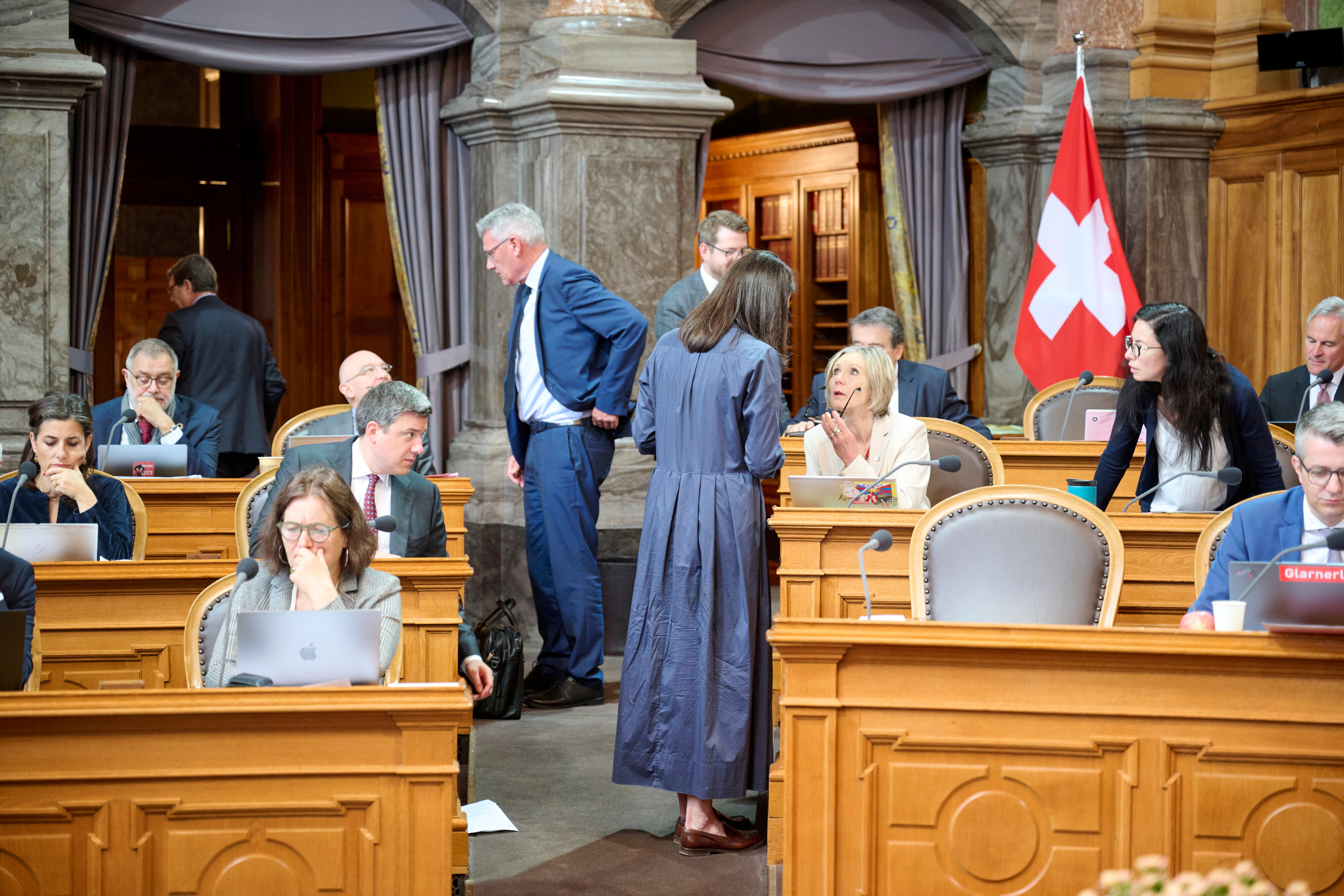
© Parliamentary Services / Franca Pedrazzetti
A careful reading of the International Cooperation Dispatch 2025–2028 sent by the Government to the Parliament left us somewhat aghast. As we already knew that the national government intends to fund support for Ukraine entirely at the expense of the Global South, the cause was one telling detail. In the German version, the Government stated the following about the decline in the ODA ratio (of which we were already aware, regrettably): "This is due to the fact that the growth of GNI [gross national income, i.e., the economy] has significantly outstripped that of the funds allocated to IC, as a result of the financial measures taken in connection with the debt brake." Whaaat? Can it be that in times of financial crises and epidemics, all those that can afford it, do contract debt to pump-prime their economies, while people in Federal Berne think that reducing government debt via the debt brake will lead to economic growth? But then came clarification: it was merely a translation error from the French version.
We were truly aghast on June 3rd as we followed the deliberations of the Council of States. First came the rejection of a motion that would have provided the increase in army spending by 2030 so desperately wanted by the conservative male majority, at least on an exceptional basis and in combination with exceptional funding for aid to Ukraine. But immediately thereafter, that majority decided to increase the army budget for weapons purchases by 4 billion, while simultaneously slashing development cooperation funds by 2 billion. A frontal attack on IC! (One annoying detail about the unique link forged in this manner and on this scale between the army and international cooperation is that it constantly brings military metaphors to mind...).
This, despite the statement by the newly created State Secretariat for Security Policy itself, that "A direct military threat from a land or air attack on Switzerland is unlikely in the near-to-medium term." Threats from cyber-attacks, for example, have nevertheless intensified. The following statement by the Government in the security policy report had either been forgotten or had never been taken on board: "It [foreign-policy] helps to strengthen international security and stability by offering good offices, helping to promote peace, standing up for international law, the rule of law and human rights, tackling the causes of instability and conflict through development cooperation and providing humanitarian aid to alleviate the plight of civilians." After all, expecting that even the notion of human security may have landed with the majority in the Council of States is truly asking too much.
But the battle to salvage IC is not yet lost, the counterattack is on, and we will not surrender! Please excuse the military metaphors.
Share post now

global
The Alliance Sud magazine analyses and comments on Switzerland's foreign and development policies. "global" is published four times a year (in german and french) and can be subscribed to free of charge.
South Perspective
22.03.2024, International cooperation
Bolivia is gripped by a severe political crisis and its economic situation is dire. But growing urbanisation also offers opportunities for sustainable poverty alleviation, says Martín del Castillo.
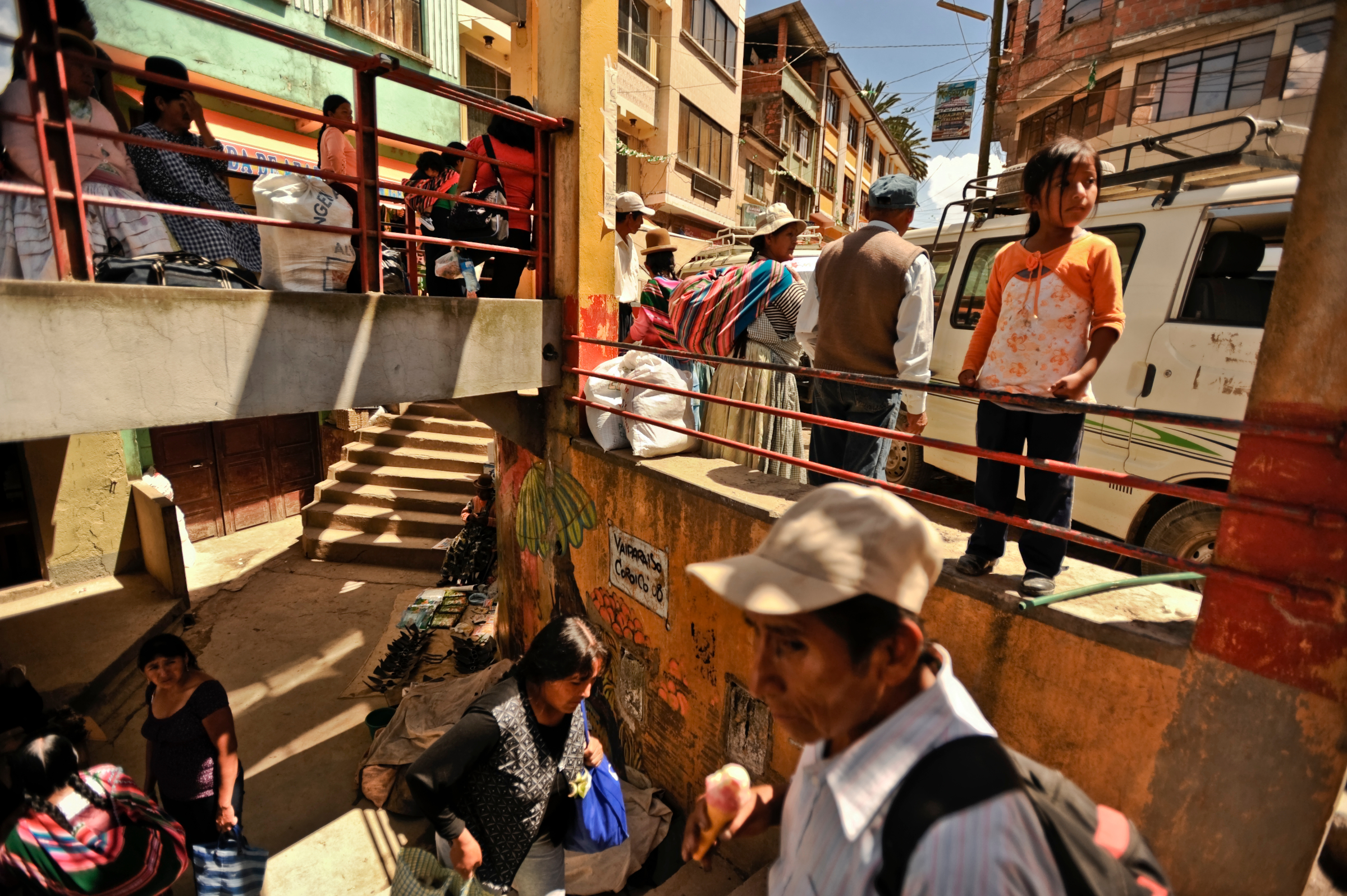
Market in Coroico, Yungas, where many young people sell coca leaves.
© Meridith Kohut / The New York Times
Across Latin America, the pendulum is swinging back and forth between the radical discourses and populist demands of the Bukeles and Mileis, the Ortegas and Morales. But no longer is the pendulum swinging between ideological extremes, between the nationalisation of private companies and radical liberalism. The back-and-forth now seems to serve the geopolitical interests of certain strategic allies, namely, the United States, China, Russia and the European Union. They support the special interests and the concentration of power in the hands of "messianic leaders" by misusing their political discourses for their own ends.
At work over the past two decades, these dynamics display several common denominators, namely, weak States, presidential systems, concentration of power in the hands of a few, co-opted and corrupt judicial systems, limited legitimacy of the party system and national parliaments, and foreign economic dependence. Bolivia is no outlier, being on the cusp of 20 years of populism (17 of which were dominated by the Left, and two by the Right), with all of the above hallmarks, plus a few other country-specific ones.
As in most countries in the region, the political parties lack legitimacy. The political elite seek out other channels such as churches, civil society organisations, or trade unions that represent the coca farmers (Bolivia's most important social movement, from which Evo Morales derives his political base). The latter are mobilised on the basis of clientelist interests. Bolivians are organising, complaining and protesting, but are not putting forward any meaningful proposals.
Bolivia also has a weak, overwhelmingly corrupt and illegitimate judicial system. Other government entities have limited capabilities, high staff turnover, excessive red tape, and produce dubious management outcomes. At the turn of the millennium, 25 per cent of the funds for public investment was in the hands of the central government, and 75 per cent in the hands of local governments; the latter figure is now down to 20 per cent. The centralisation of public decision-making and budgets is a clear indication of Bolivia's institutional shortcomings.
The long reach of Swiss development cooperation
Ventilators were in short supply during the pandemic, and poorer countries in particular were unable to access these life-saving machines. In Bolivia, for example, medical staff had to perform ventilations by hand. Driven by necessity, a Bolivian university developed an automatic ventilator that was inexpensive and could be quickly built. It was sold at cost to remote communities, and to other countries. This was only possible thanks to the support of Swiss development cooperation, which funded the work and forged ties between the various stakeholders.
Since the presidency of Evo Morales (2005 to 2019), Bolivia's poverty rate has fallen significantly: extreme poverty is down from 38 per cent to less than 15 per cent, and moderate poverty from 60 per cent to 39 per cent. There has been relative macroeconomic stability, with inflation in the single digits, and economic growth averaging almost 4 per cent.
Despite these promising figures, Bolivia's current economic situation gives little cause for optimism. The informal economy encompasses almost 80 per cent of the population. These people have no access to social security systems, they receive no employee benefits and are not taxed. Moreover, proven gas reserves – the country's principal source of income and exports – have diminished sharply, the public sector has become bloated, and the national budget can no longer sustain fuel subsidies.
The upshot has been years of budget deficits since 2014, and dwindling foreign exchange reserves. Both external and domestic public indebtedness has increased exponentially. Bolivians are now grappling with an extreme foreign currency shortage especially those engaged in imports. This has spawned a black market and is generating considerable devaluation and inflationary pressure.
Yet another factor is accelerated urban sprawl. Huge swathes of urban dwellers live in precarious circumstances in the big cities and towns, or migrate to agricultural areas during the planting and harvesting seasons. This expands the country's agricultural zones and puts pressure on the provision of basic services in urban and suburban areas.
In this context, the central government is pursuing an ambivalent environmental policy. Under the pretext of encouraging the settlement of large uninhabited areas, it is facilitating migration to the lowlands. This is helping to push back the agricultural frontiers and to increase the production of coca leaves – mostly for illegal use. At the same time, the government is resorting to slash-and-burn techniques to secure more land for cultivation. This is damaging both fauna and flora. Deforestation and forest fires are a constant feature in the Amazon and the Chiquitano dry forest. Besides, national climate protection commitments are far from being met.
In the meantime, the governing party (MAS – Movimiento al Socialismo) is disintegrating. The current President Luis Arce – former Minister for the Economy to Evo Morales – has secured the loyalty of a large share of party-affiliated organisations. Evo Morales, in turn, controls the most important pro-government figures in the Parliament and is the current party chairman and also the most important leader of the coca farmers. This power struggle has spawned divisions across all government agencies and slowed down the public administration. This situation is likely to persist until the elections in 2025.
In this problematic setting, opportunities are rare, but they do exist and should be seized. Urban concentration is a driver of innovation and entrepreneurship. The role of the private sector and of academia can be enhanced for the purposes of finding solidarity-based and participatory development solutions. The favourable age structure and its potential for boosting the workforce constitute a significant factor that is concentrated in medium-size cities and fast-growing conurbations. The ecological diversity, huge forests and mountains offer interesting opportunities.
Exploiting the opportunities will require efforts in the realms of natural resource management, inclusive economic development, sustainable urban development, or sewage and waste management. International cooperation must support these endeavours and provide technical assistance. Lastly, it is incumbent on citizens to demand that decisions and measures are implemented. This can help ensure that those who have emerged from poverty do not fall back into poverty.
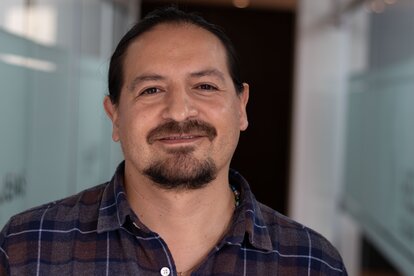
Martín del Castillo is an economist and political scientist and holds a Master's degree in public management and decentralisation from the Universidad Andina Simón Bolívar in Sucre, Bolivia, and a Master's degree in development from the University of Geneva. He has been working for Helvetas since 2007.
Share post now
Meinung
05.10.2020, International cooperation
In 2019, Alliance Sud reported in its magazine “global” on the Swiss agricultural firm GADCO in Ghana. Those in charge rejected the portrayal. Guest author Holy Kofi Ahiabu, the Ghanaian employee of Alliance Suds Kristina Lanz, faced intimidation.
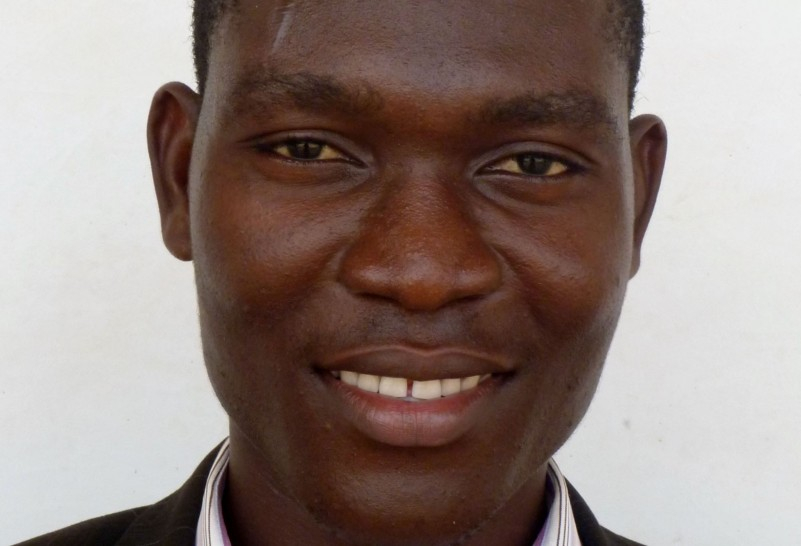
Holy Kofi Ahiabu
Share post now
Meinung
10.12.2020, International cooperation
The increase in gender-based violence during lockdowns, labelled the “shadow pandemic” by the UN, threatens the lives and livelihoods of women and girls in Nigeria. There is a need for collective action, writes Oladosu Adenike Titilope.
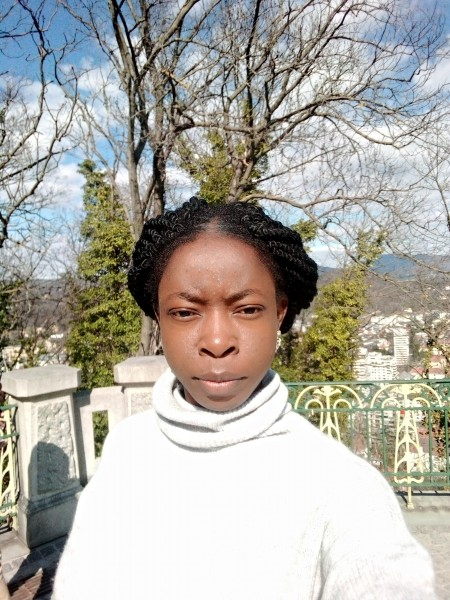
Share post now
Opinion
23.01.2024, Trade and investments
Guy Parmelin, the Swiss Minister of Economic Affairs, announced on Sunday that he had reached an agreement in principle with India on a free trade agreement, negotiations on which had been going on for 16 years. Without giving any further details, he assured that the two parties had also reached agreement on the issue of patent protection, which had been the main stumbling block.
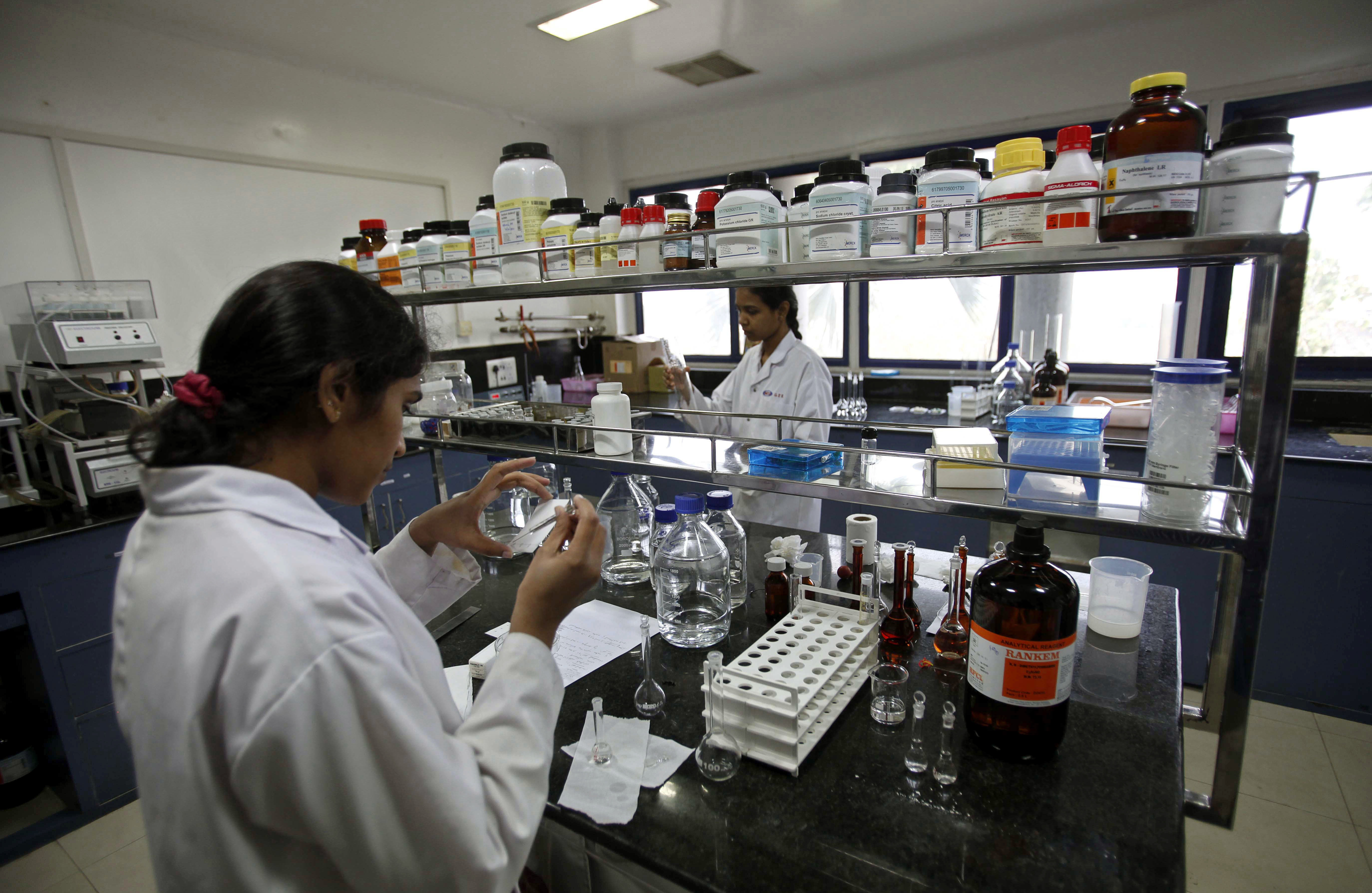
Indian scientists work in a laboratory at the Research and Development Centre in Hyderabad, India.
© Keystone / AP / Mahesh Kumar
We don't know what this agreement contains – the negotiations are secret and have not been completed – but Alliance Sud and like-minded Indian organisations such as Third World Network (TWN) are worried. Until now, the Indian government has always maintained that it did not want intellectual property rights to be strengthened (known in the jargon as TRIPS+) in free trade agreements (FTAs). We understand that Switzerland demanded TRIPS+ provisions as a condition to conclude the free trade agreement and we suspect that there might be inclusion of this kind of provisions in the final text.
From the point of view of the right to health, this would be problematic. India is the world's leading producer of generic medicines, which it exports to developing countries. Under current law, patents last for 20 years from the date of filing, as stipulated in the TRIPS agreement of the World Trade Organisation. The free trade agreement could provide for an extension of the patent term beyond 20 years, which would delay the release of generic medicines.
In addition, the current law does not provide for data exclusivity, which means that a drug can be approved at any time, whether it is a new product, or a product approved anywhere in the world. The FTA could force India to change its law to introduce data exclusivity, which would delay the introduction of generic medicines.
Finally, under the current system, India does not grant patents for a new use of a known molecule (evergreening). The FTA could require India to introduce this obligation.
If the FTA contains these provisions, India will have to amend its Patent Act and reduce the flexibility it provides. This would also set a precedent in the ongoing free trade agreement negotiations with the European Union, the United Kingdom and the United States.
Another problem could be seed protection. Switzerland usually asks developing countries with which it negotiates free trade agreements to sign up to UPOV 91, the convention that "privatises" seeds so as to make it more difficult for farmers to reuse and exchange them. If this provision is also included in the agreement with India, it would jeopardise the right to food of small farmers who cannot afford to buy patented seeds, or who do not want to.
Alliance Sud calls on Switzerland to lift the veil on these negotiations and not to jeopardise the right to health and access to seeds of the Indian population, especially the most vulnerable.
Share post now
Opinion
02.10.2023,
The war in Darfur has destroyed his hometown of Nyala. But not the call for justice and peace, writes Sudanese journalist and human rights observer Ahmed Gouja.
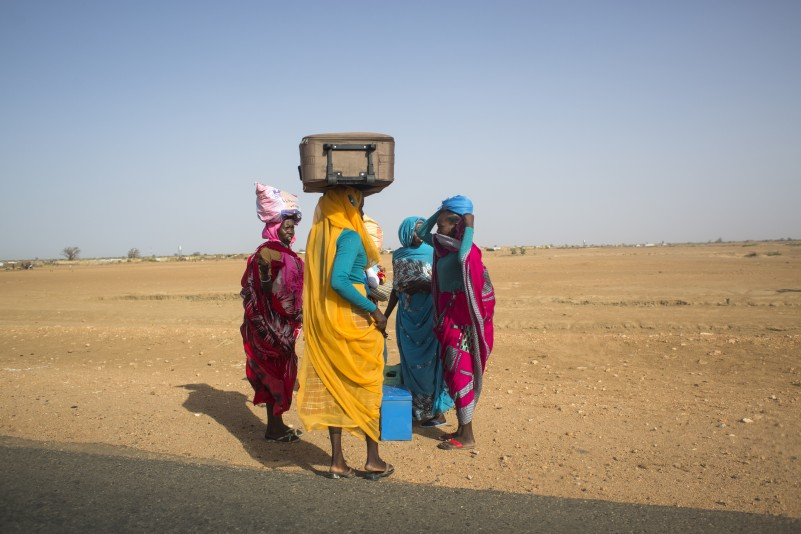
In 2021, many of the internally displaced people in Nyala began to resettle in neighbouring villages. But the bloody conflict in Sudan in recent months forced these women to flee again.
© Ala Kheir
Share post now
Opinion
03.10.2023, International cooperation
In fragile contexts, does only a strong army help? Solid research shows that development cooperation can play an important role even in an exceptionally difficult environment, writes Alliance Sud Director Andreas Missbach.
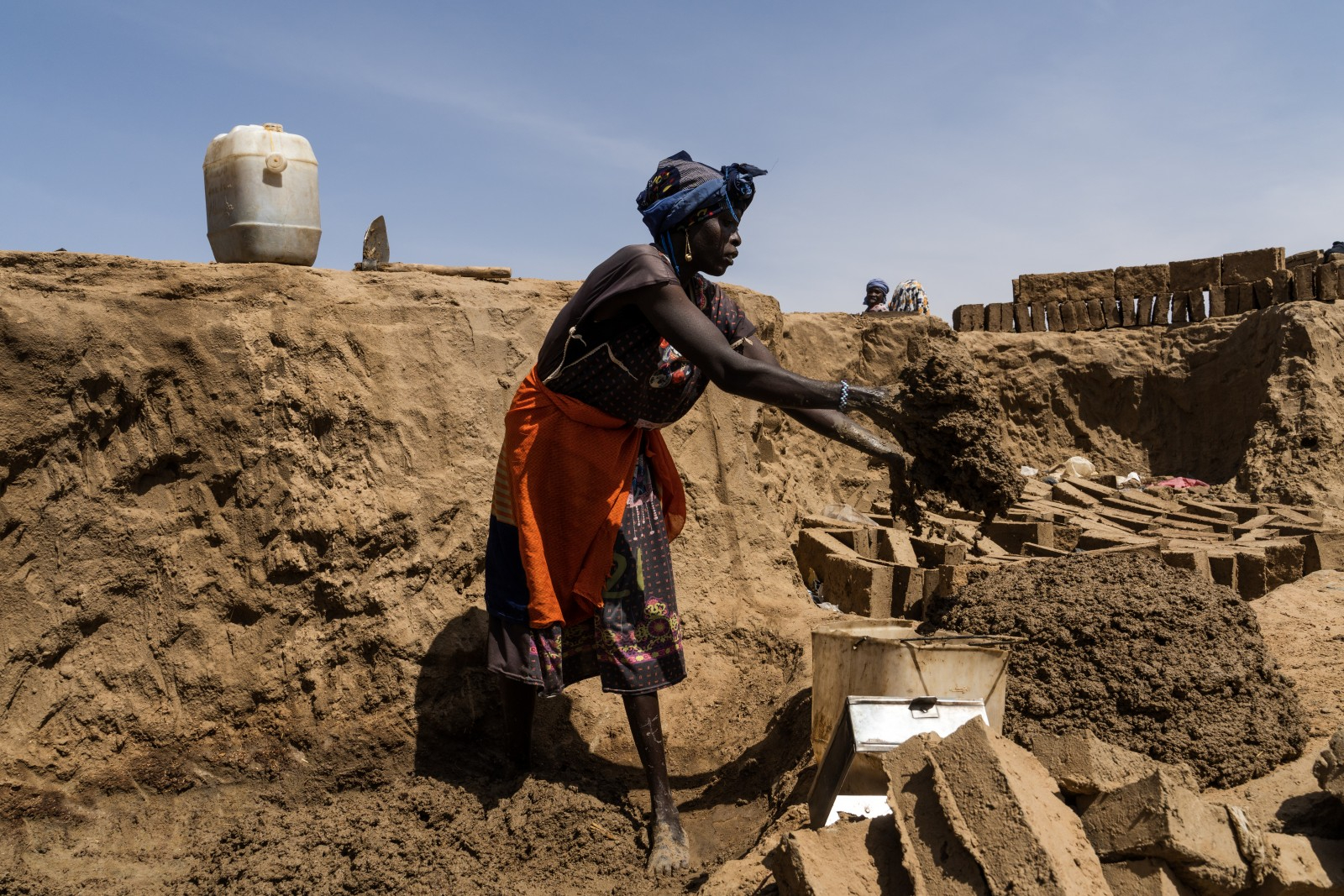
© Ala Kheir
Share post now
Opinion
02.10.2023, Other topics
Cuba is in the grip of its worst economic crisis since the collapse of the Soviet Union. Yet, many Cubans blame their own government rather than the US embargo or the impacts of the pandemic.
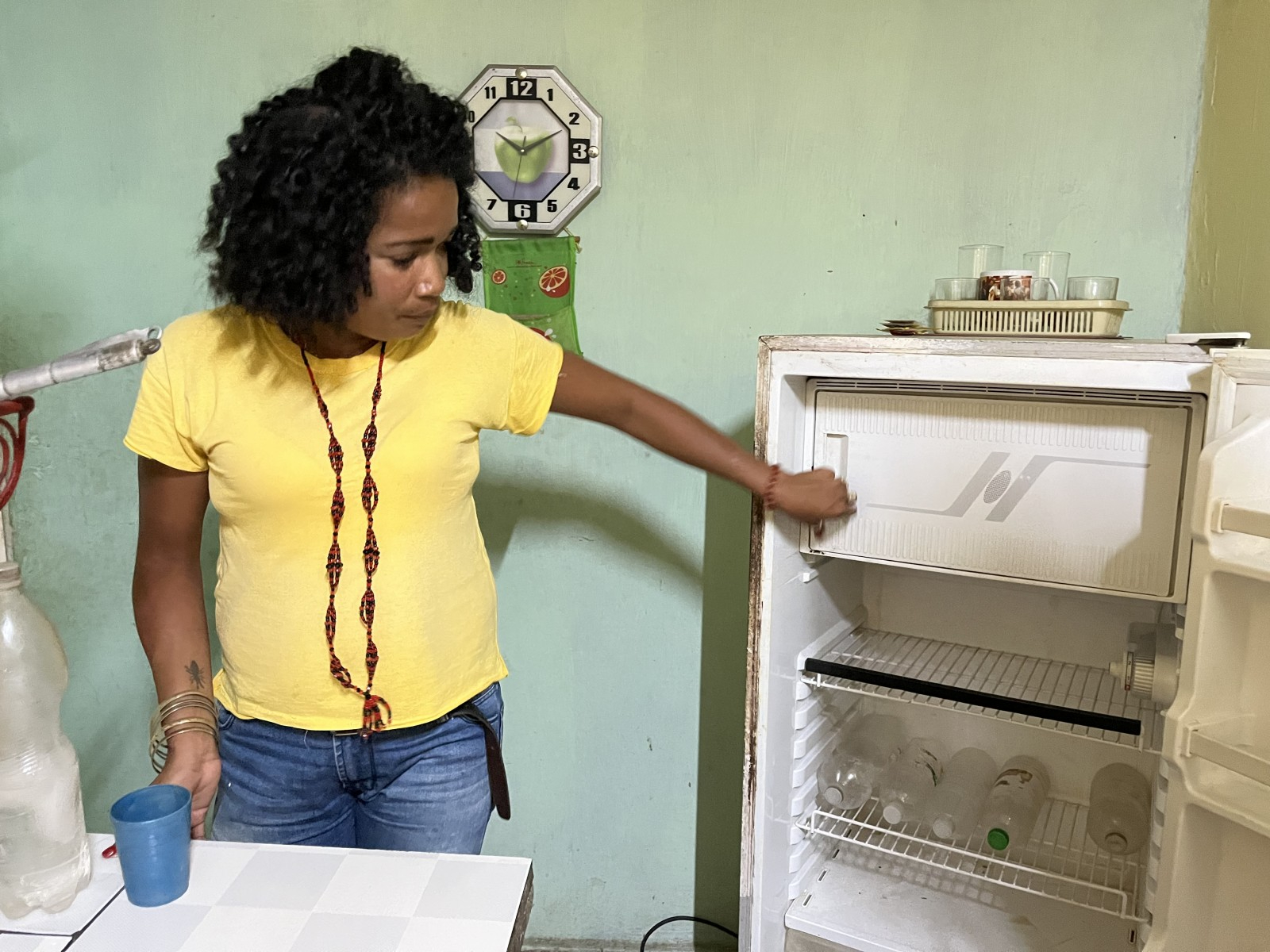
© Karin Wenger
Share post now